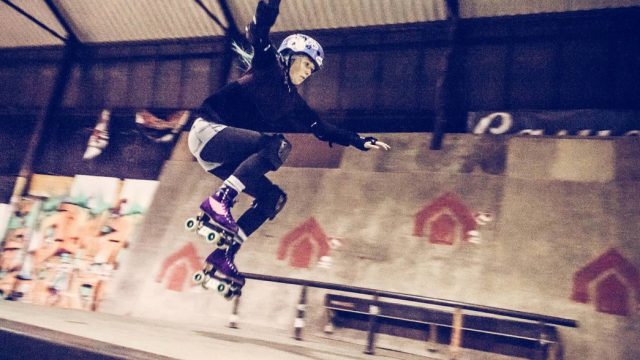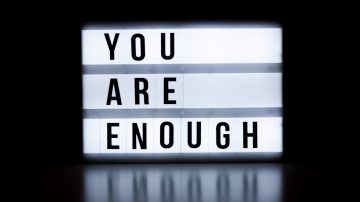I don’t really remember a time in my life when mental health problems haven’t plagued me. I was given my first diagnosis at the age of 18, but for the first part of my life I didn’t realise the way I thought was different from other people. Mental illness has cost me much: a place at university, friends, jobs, my freedom, my physical health, and my autonomy. My ability to enjoy life and engage with the world around me has suffered as a result. I have been able to replace or reverse many of these things but some are still a work in progress.
Something that helps my mental health is volunteering for the Sheffield Health & Social Care Trust helping out at various training sessions. I was telling my story to a group of doctors at an event recently and it came to question time at the end. One of the doctors asked, “Where does medication come into your recovery – you haven’t mentioned it?”. I was incredibly glad for the opportunity to answer because my recovery began when I stopped taking medication. This isn’t necessarily the correct route for everyone, but it was one of the best decisions I ever made.
I had been on a cocktail of medications for many years which I sporadically hoarded and used to overdose on. They made me feel disengaged with the world around me. After coming off the medication I found odd things began to happen. I found I could dance with my hula hoop more, connecting to the music and letting it flow through my body. I started to write poems as a creative outlet for my thoughts and feelings. Although it helped squash the bad feelings, I realised the medication also dulled the good ones. My new ‘medication’ was to connect with the world around me and do so in a physical way.
I had hoop danced for years previously but lost interest in it. During a long-term hospital admission in York, I started to hoop again which led me to meet a fellow hooper. She introduced me to roller skating at roller disco – I loved it! A couple of other patients and I bought our own skates and would spend hours skating off a difficult day on the unit in the evening. I met another patient from the unit next door who had been sectioned for 10 years by the age of 26. We somehow got talking on the subject of gymnastics and acro and I learned she had done sports acro competitively as a teenager. She began to teach me; her as the base and me the flyer. We would spend hours perfecting our moves. For the first time in years I had something else to turn to when I felt bad. I no longer wanted to hurt myself because I wouldn’t be able to hoop, skate, or do acro.
When I returned to Sheffield at the end of my admission I slowly started to develop my interest in these activities despite a very difficult situation with my mental health and housing situation. Previously, most of my friends had been from hospital where my whole world revolved around mental health. But now I had new friends who were up for acro and hooping or going to the roller disco and skate park. My body got stronger and I started to appreciate all the things it could do for the first time. This object that had plagued me with worries my whole life was now performing amazing activities: handstands, skating down ramps, balancing upside-down on other people, and simply connecting to the music and dancing with my hoop.
I do have to monitor my physical activity as I have a tendency to overdo it and it can get mixed up with my eating disorder if I’m not careful. But on the whole it is vital to the recovery of every aspect of my mental illness. For my eating disorder, I know must eat in order to have the energy to do the things I enjoy. Seeing myself grow stronger and my body learn new skills is so important. For recovery from my Borderline Personality Disorder, I know I can’t hurt myself as if I can’t skate I will find it difficult to regulate my emotions and things can spiral pretty quickly. It gives me a physical outlet for the strong emotions I often feel so they don’t build up inside. Physical activity also helps me manage my Post-Traumatic Stress Disorder as the immersion of the whole body and mind in an activity can really help ground me to the present.
I don’t have any problems fitting physical activity into my life because I find it so fun! It’s my social life. It’s my escape. Hearing other people moaning about not wanting to go to the gym and having no enthusiasm for exercise makes smile a little. I forget I’m even exercising sometimes – I’m just having fun with my friends. Going to the gym is something that is not helpful for me personally as it has been an obsession in the past and if I’m running it is usually because I’m running away from something! So for me, my unusual activities provide an ideal way to keep active and healthy. A year ago I couldn’t do a sit up, but now I can do a sit up from a backbend with no hands, balanced on someone’s feet! And I never once went to a gym class. Moreover, I find that the circus community and the skate community are incredibly friendly, accepting, and understanding of mental health issues on the whole. They are often quite low-cost (I pay an average of £3 an hour), and some are available through Move GB where you can pay a weekly subscription and attend as many sports classes as you wish. Others have allowed me to pay in a different way if I haven’t been able to to pay one week. The people I do these activities with aren’t scared off by my mental illness and accept it is part of me. Sometimes I’m more able to participate than other times and that’s ok.
Now at the age of 31, I have many tumultuous years behind me. Self-harm, starvation, suicide attempts, overdoses, hospitals, sections, ambulances, police involvement, hurting people around me, being labelled as a “complex case”, people losing hope for me and me losing hope in myself are all in the past.
The future is bright. I still have mental health problems – very significant ones – but I have many more tools to manage them now. I have a job (the first in 3 years) that I love, I have hobbies, I have friends, I can travel again, and I understand what is going on for me. Every day is a battle and a logistical nightmare but I still manage to get through.
For a long time, I thought the only way out was death, but that option is now unthinkable for me – there is a way out. Yes, it may be up a huge mountain, but I’ve got my support team and it’s ok to go back to base camp or rest at some of the safe camps on the way up. I don’t have to do it all tomorrow – and understanding that has been really important.
Photo courtesy of Hannah Soar Photography



